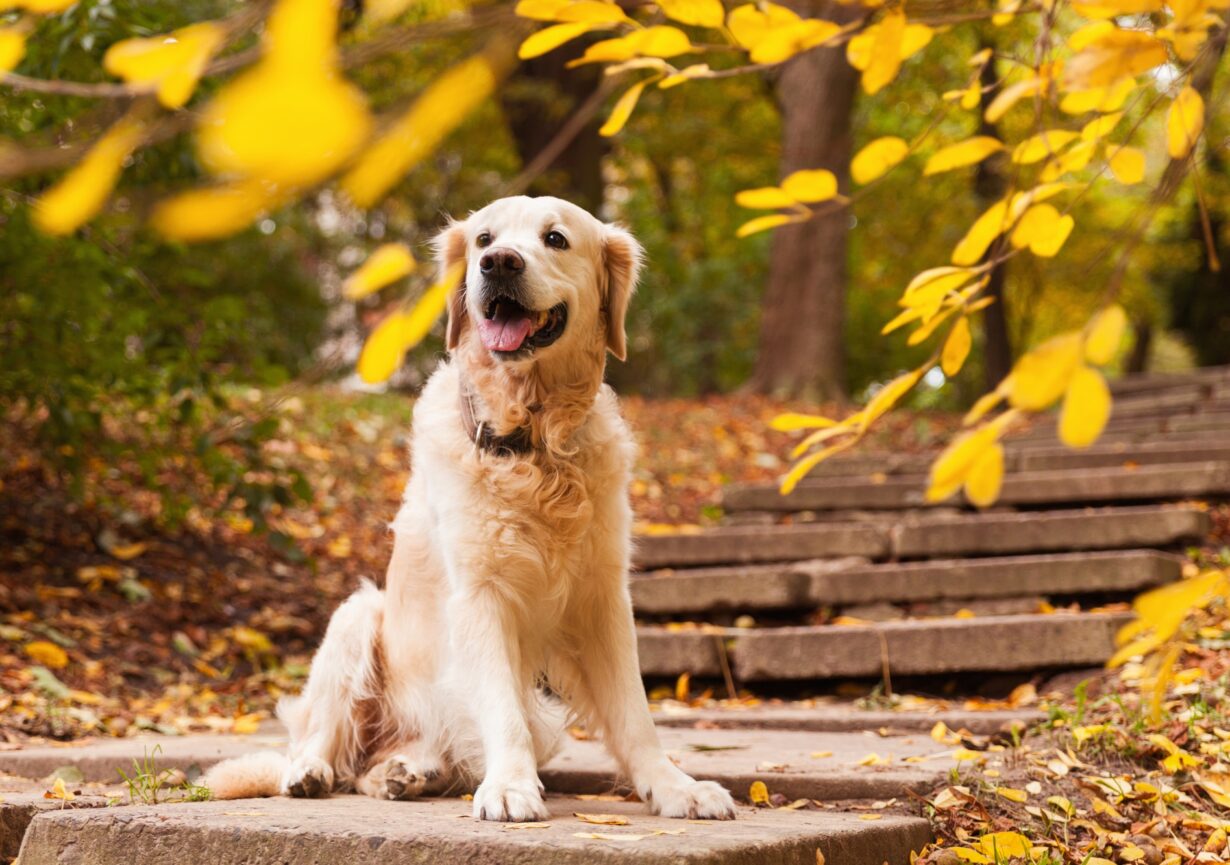Golden Retrievers are one of the most beloved dog breeds in the world—and for good reason. Known for their friendly temperament, intelligence, and boundless affection, these golden-coated companions are everything you could want in a family dog. But owning a Golden Retriever isn’t just about soaking up cuddles and playing fetch in the yard. It also means being prepared to meet their needs, guide their energy, and nurture their health from puppyhood through their golden years.
This guide breaks down everything you need to know about raising a happy and healthy Golden Retriever, whether you’re preparing to bring home your first pup or looking to better care for the one already snoozing on your couch.
1. Understanding the Golden Retriever Temperament
Gentle, Loyal, and Always Ready to Please
Golden Retrievers are famously friendly and gentle, which makes them an ideal choice for families, especially those with young kids. They thrive on companionship and tend to form strong bonds with every member of the household—not just one favorite person. These dogs are eager to please, which makes them highly trainable and responsive to positive reinforcement.
They aren’t aggressive or territorial by nature, which means they’re better suited as family pets than guard dogs. Instead of barking at strangers, they’re more likely to greet them with a wag and a toy in their mouth.
Built for Social Living
Don’t expect your Golden to be happy left alone in the yard all day. These are social animals who crave interaction and purpose. Without enough attention, Golden Retrievers can become bored and even destructive. They’re happiest when involved in daily family activities, whether that’s a hike in the woods, helping with yard work, or simply being the furry shadow who follows you around the house.
2. Training a Golden Retriever: Start Early, Stay Consistent
Smart but Sensitive
Golden Retrievers are highly intelligent, ranking fourth in dog intelligence among all breeds. This means they can learn commands quickly—but it also means they’ll pick up bad habits just as fast if you’re not careful. Start training early, ideally as soon as your pup comes home. Focus on basic obedience like sit, stay, come, and leash walking before building up to more advanced tasks.
Because Goldens are sensitive and eager to please, they respond best to positive reinforcement. Harsh corrections or yelling can shut them down or create anxiety.
Consistency Is Key
Training should be a daily habit, not a one-and-done event. Repetition helps your Golden understand what’s expected and keeps their mind sharp. It’s not about perfection—it’s about creating routines that your dog can trust. Stick to the same words for commands and reward good behavior every time, not just when it’s convenient.
3. Exercise and Mental Stimulation Needs
More Than a Walk Around the Block
Golden Retrievers are high-energy dogs. Even though they mellow out somewhat with age, they require a significant amount of daily exercise to stay fit and content. A 10-minute stroll around the neighborhood won’t cut it. Think at least one hour of physical activity each day—broken up into walks, play sessions, or outdoor adventures.
Fetch, swimming, and hiking are all great options. If you’ve got a backyard, a game of chase or tug-of-war can go a long way toward burning off energy.
Don’t Forget Their Brain
These dogs aren’t just physically active—they’re mentally sharp. Without enough stimulation, Goldens can become destructive or develop habits like excessive barking or digging. Use puzzle toys, obedience games, or even light agility training to keep their minds engaged.
You can even give them jobs around the house—retrieving items, carrying small bags, or learning names of toys to fetch. A mentally tired dog is a well-behaved dog.
4. Grooming and Coat Maintenance
Shedding Is Real
Golden Retrievers have a beautiful double coat that keeps them warm in winter and cool in summer—but it comes with a price: constant shedding. You’ll need to brush them at least 3–4 times a week to manage the fur, and even more during their heavy shedding seasons in spring and fall.
Don’t skip this step. Regular brushing not only keeps your home cleaner but also prevents painful mats and skin issues from developing under the surface.
Baths, Ears, and Nails
Goldens don’t need frequent baths—once every 6 to 8 weeks is usually enough unless they roll in something unpleasant. Their floppy ears are prone to infections, so check them weekly for signs of redness or smell. Nails should be trimmed monthly, and dental care (brushing or chews) should be part of the routine.
5. Nutrition and Health Essentials
Feed the Right Food, the Right Way
Your Golden Retriever’s diet is the foundation of their health. Choose a high-quality kibble that’s appropriate for their age, size, and activity level. Puppies need food designed for large breeds to help support proper growth and avoid joint issues.
Stick to feeding schedules instead of free-feeding, and always measure their portions to prevent overfeeding. Obesity is one of the most common health problems in Golden Retrievers and can lead to joint pain, diabetes, and heart disease.
Watch for Common Health Concerns
Unfortunately, Golden Retrievers are prone to several health conditions, including hip dysplasia, elbow dysplasia, heart problems, and cancer. Regular vet checkups, a healthy diet, and proper exercise are your best defense.
Pay close attention to any changes in appetite, energy, or behavior—these dogs are tough and often won’t show pain until it becomes serious.
6. Raising a Golden with Kids and Other Pets
Naturally Family-Oriented
Few breeds are better with children than Golden Retrievers. Their patience, playfulness, and gentle demeanor make them a natural fit in busy households. That said, always supervise playtime, especially with toddlers, to ensure your dog isn’t overwhelmed and your kids aren’t unintentionally rough.
Teach your children how to respect boundaries—no pulling ears or climbing on the dog—and everyone will be safer and happier.
Getting Along with Other Animals
Golden Retrievers generally get along well with other dogs and even cats, especially if raised with them. They’re not territorial or aggressive, so introductions typically go smoothly. However, early socialization is still important. Expose them to different animals, environments, and sounds to help them grow into a confident adult.
7. Building the Bond: Creating a Lifelong Companion
Quality Time Matters
A Golden Retriever isn’t just a pet—they’re a full-blown family member. To build a deep, trusting bond, spend quality time with them every day. Whether it’s playing, training, cuddling, or simply being in the same room, your presence means everything to them.
They’re emotionally attuned and will pick up on your moods. When you’re calm and consistent, they feel safe. When you’re stressed or unpredictable, they notice.
Love + Leadership = Loyalty
Your Golden will give you unconditional love—but they also need leadership to feel secure. When you set clear expectations and provide a stable, loving environment, your dog will thrive. And in return, you’ll get the kind of loyalty and joy that only a Golden Retriever can offer.
Conclusion
Raising a happy and healthy Golden Retriever is both a joy and a responsibility. These affectionate, intelligent, and active dogs need much more than love alone—they need structure, stimulation, care, and companionship. From brushing out their glorious golden coat to helping them navigate new experiences with confidence, every part of the journey brings you closer to a lifelong best friend.
If you’re ready for a dog that brings sunshine to rainy days, greets you like a hero every time you walk through the door, and loves your family with every fiber of their being—then a Golden Retriever might just be the perfect companion.


